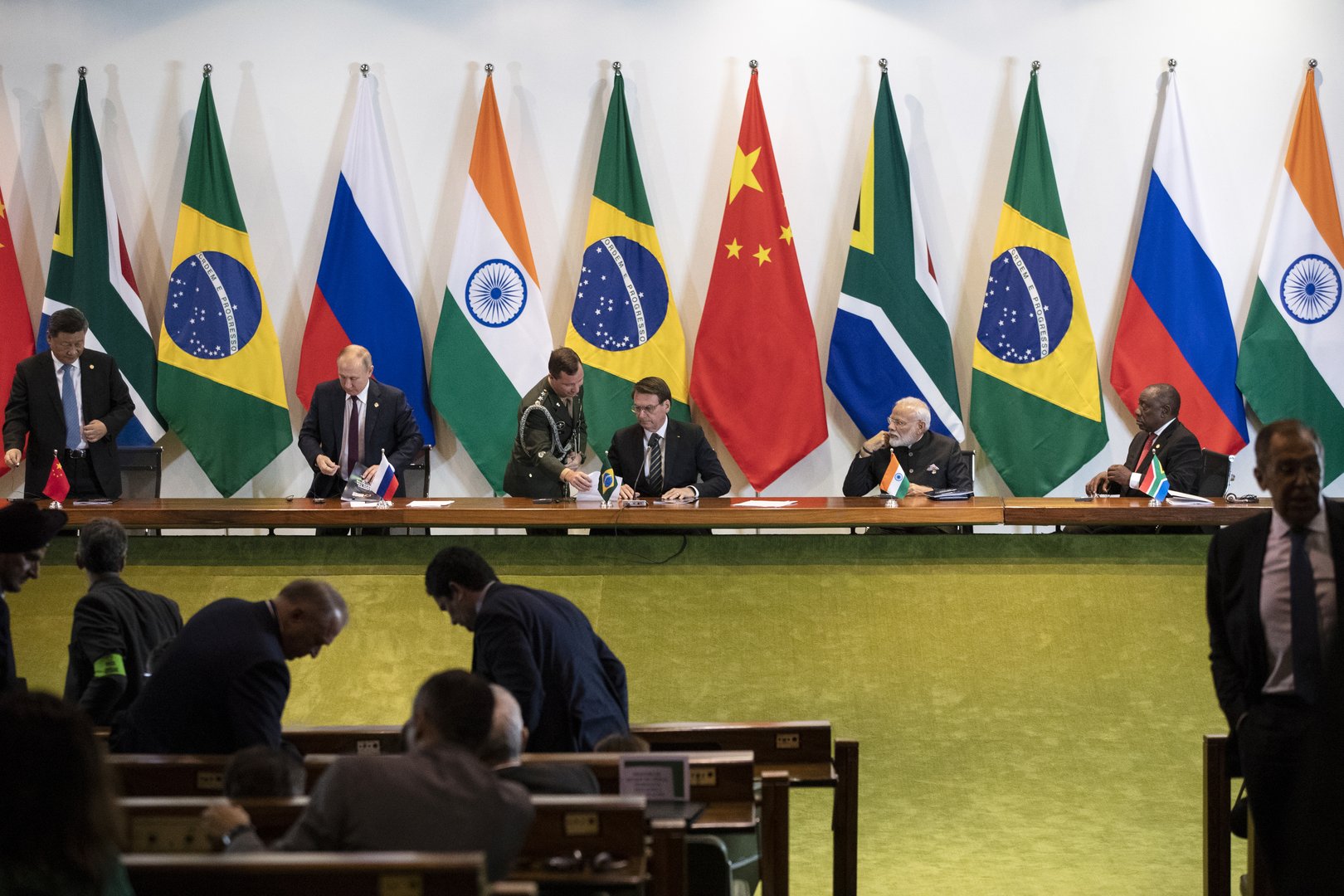By Ioannis Tirkides
The war in Ukraine may be the most violent and eruptive event in world affairs for a long time. But it is not a singular or autonomous event. Nor is it simply a clash between Russia and NATO and the United States. The war in Ukraine should be understood as a manifestation of a broader conflict between East and West that has been brewing for a long time. It is a clash between great powers that is tearing apart and fragmenting the global system.
And as such, the war marks the limits and drawbacks of the so-called rules-based order of international relations and underlines the nationalist and anarchic nature of what is emerging. Suddenly there is more uncertainty and more risk of global rivalries and violent outbreaks of war.
For the first time, the United States is fully committed to defeating and even dismembering a great and powerful nuclear power, Russia, in Ukraine. For the first time there is a major split between the West on the one hand and the rest, the global majority of countries that do not subscribe to the Western narrative. The unipolar world of the post-Soviet era is coming to an end, to be replaced by a multipolar system. The world is rebalancing, and the global economy is de facto fragmenting. In this article, we analyse and discuss some of the relevant issues.
The unipolar moment
When the Soviet Union collapsed, the world became what international relations scholars call unipolar. The rivalry between the United States and NATO on the one hand and the Soviet bloc on the other had come to an end, and capitalism was the only thing left standing. America had emerged as the undisputed, singular global superpower.
This was when Francis Fukuyama published his famous article “The End of History” in 1989, and a book of the same title a few years later. Fukuyama’s basic argument was that after the defeat of fascism in the Second World War and the defeat of communism at the end of the Cold War, what was left, the only viable political system, was that of liberal democracy and its capitalist organisation of the economy.
If this were to be the dominant system, and if the world were to be populated by liberal democracies, without end, then the causes of war would disappear, because liberal democracies do not fight each other. And history would end.
In retrospect, this was triumphalism at its worst, a bit of hubris, completely wrong-footed, and perhaps even remarkably foolish. History didn’t end, nation states didn’t collapse, and certainly liberal democracies didn’t populate the planet.
But for a time in the unipolar moment, when the United States was the only superpower, the largest economy and the consumer of last resort, a kind of backstop for the global economy, it looked as if history had indeed ended. The spread of liberal democracy and its economic organisation seemed the only way forward, the wave of the future.
So, America embraced China, and the European Union followed suit with successive waves of enlargement in 1995, 2004, 2007 and 2013. The European Union had 12 members in 1991; it is 27 now after losing one, the UK in 2020. At the same time, NATO has expanded from 16 members in 1990, when Germany was reunited, to 31 today, or 32 including Sweden.
War as a turning point
The war in Ukraine is a turning point in international affairs. It is the first time that a war has been fought with the explicit aim of defeating a great and powerful nuclear power, bringing about regime change and perhaps even dismemberment. It is the first time that the United States is fully committed to the war on the side of Ukraine, providing so much arms and intelligence that Russia sees it as part of the conflict. It is the first time that the West has tried to exclude a major country like Russia from the international financial system, while at the same time confiscating its reserves. It is also the first time that nuclear escalation has been seen as a not-insignificant risk.
The West is now portraying developments as an unprecedented revival of Western Atlanticism. Germany, for example, has completely changed its foreign policy, has distanced itself from Russia and will rearm. NATO has expanded to include Finland and Sweden and is arguably more united, and so, any prediction of the emergence of a new world order, one that is not led by the West, is completely wrong.
But some fundamental things are changing. America’s hegemonic position in the global system is now being challenged in a concerted fashion by both Russia and China. The Global South hasn’t bought into the West’s particular paradigm. Countries in the Middle East, Southeast Asia, Latin America and elsewhere have a very different and very distant view of the war in Ukraine.
Enter the BRICS
The simultaneous rise of China and the BRICS is perhaps the biggest development in world affairs since the fall of the Soviet Union in 1991 and cannot be ignored. The BRICS consist of five countries – Brazil, Russia, India, China, and South Africa – and their combined GDP in purchasing power parity is now larger than that of the G7, the group of the world’s richest countries. This gives them the missing critical mass to break away from the dollar-dominated system.
At the time of the collapse of the Soviet Union in the early 1990s, the US accounted for 20 per cent and the G7 for half of global GDP in purchasing power parity terms. China accounted for 5 per cent and Russia for 3 per cent. Today’s BRICS accounted for less than 15 per cent. The economic gap was huge then, when the population ratio was 4 to 1, BRICS versus G7. By contrast, at the end of 2022, the G7 accounted for 30 per cent of global GDP and almost 10 per cent of the world’s population. The BRICS accounted for 31 per cent and 41 per cent of the world’s population respectively.
These changes in relative economic positions are not reflected in the global rules-based order and its institutions. This is unsustainable. The BRICS, led by China, have declared their opposition to the dollar-dominated global system and are taking steps to de-dollarise. The de-dollarisation of the global economic system, if it happens, will have far-reaching implications for the United States and the West.
Multipolarity and great powers
The world is de facto multipolar. This does not necessarily mean a return to a new Cold War, but rather a new era of great power politics reminiscent of the 19th and early 20th centuries. It is important to understand how great powers interact in a multipolar international system. The key element, according to Professor John Mearsheimer of the University of Chicago, is that the system is anarchic. This means that there is no hierarchy,
no higher authority that sits above the states. So, states are the main actors. States differ in their capabilities and in their intentions. Things are not static. Capabilities and intentions are not fixed, they vary, and they can change. So, in this sense there is a high degree of uncertainty. Nation states are rational actors, but they react when they are threatened, and that makes the system more dangerous. So, our world today is dominated by great power competition, uncertainty is high in many areas, and you can never know what a particular country will be and what will drive its behaviour in 10, 20 or more years. This is less predictable than the Cold War.
Final word
The international institutions that characterised the post-World War II era may not be equally applicable to the emerging multipolar international order. The post-Ukraine world will look very different from the pre-war world. Processes that were dormant or slow to change have now accelerated, and this will lead to a decoupling of East and West in terms of technology, trade, and economics. The relative positions of countries in the global order will change and not all will be winners.
Ioannis Tirkides is the Economics Research Manager at the Bank of Cyprus and President of the Cyprus Economic Society. Views expressed are personal. The article is also published on the Blog of the Cyprus Economic Society.







Click here to change your cookie preferences